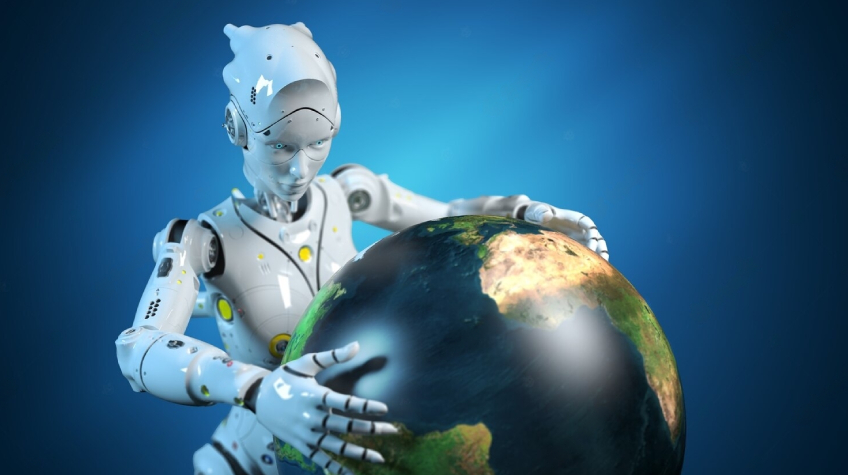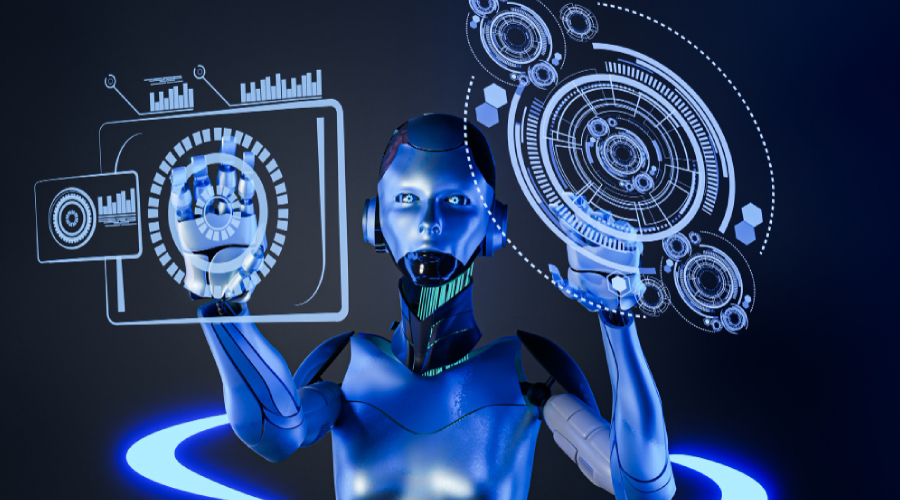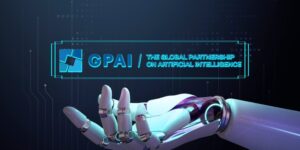
As artificial intelligence (AI) continues to transform our world, it will bring both positive and negative impact of AI on society, much like most changes in life. The balance between these impacts is uncertain and a topic of much debate. However, as an optimist, I believe the changes will largely be positive, although some challenges may arise. It is important to consider these challenges and proactively address them, while also recognizing the positive impacts that AI will have on society. If you are planning to pursue an AI course or something like an MS in Artificial Intelligence, then this article is a good place to understand the moral and social implications of the field.
What is AI?
AI has become so ubiquitous in our daily lives that many of us are not even aware of its impact and our reliance upon it. From the moment we wake up, we interact with AI technology through our mobile phones, laptops, and other devices. This technology facilitates our decision-making, planning, and information-seeking, and is integral to our daily routines. AI functionality such as face ID and image recognition, emails, apps, social media, digital voice assistants, online banking, driving aids, shopping, and leisure activities like streaming services are just a few examples of how AI touches every aspect of our lives.
Origin of AI
But what exactly is AI and where did it come from? AI refers to the intelligence demonstrated by machines, as opposed to the natural intelligence displayed by animals and humans. The human brain, with its 86 billion neurons and 100 trillion synapses, is the most complex organ, controlling all functions of the body and interpreting information from the outside world. While scientists are still unraveling and understanding many of its capabilities, AI technology is constantly evolving and learning, just like the human brain.
The roots of AI can be traced back to the Second World War, when Alan Turing’s work on code-breaking at Bletchley Park laid the foundations of computer science. In the 1950s, Turing posed the question of whether machines could think for themselves, which led to breakthroughs in machine learning and problem solving. Computer and cognitive scientists like Marvin Minsky and John McCarthy recognized the potential of AI and fueled exponential growth in the field. The 1956 Dartmouth College workshop, attended by many of today’s AI leaders and innovators, laid the foundation for the field of AI.
How does AI work?
Artificial intelligence (AI) is a technology that relies on advanced machine learning algorithms and high-level programming to acquire vast amounts of data, manipulate it to gain knowledge, patterns, and insights, and apply it to new and unfamiliar scenarios. AI comes in many forms, ranging from simple chatbots to complex machine learning systems used by large organizations. These systems are designed to learn and adapt without explicit instructions, and they are categorized as supervised, unsupervised, or reinforcement learning.
Narrow AI refers to systems that have been taught or learned to undertake specific tasks without explicit programming. Virtual assistants and recommendation engines are examples of narrow AI. Artificial general intelligence (AGI) is the ability of intelligent machines to understand and learn any task or process usually undertaken by a human being. Strong AI, which is sometimes used interchangeably with AGI, applies only once machines achieve sentience or consciousness.

Natural language processing (NLP) is a challenging area of AI that requires a lot of data. Expert systems and data interpretation are required to teach intelligent machines how to understand human language. Deepmind is a cloud service developed by major technology organizations to capture the machine learning market. It uses NLP to answer questions with identifiable speech recognition and response.
Career prospects in AI
Today, AI is an essential part of global communication and interconnectivity in business, and capitalizing on AI and data science is essential for growth. The potential trajectory for AI’s development is limitless, and its impact on society will only continue to grow. As we continue to embrace AI technology in our daily lives, it is important to be aware of the challenges and opportunities it presents and to proactively address them.
AI has a lot of career prospects, with growing opportunities in automation, data science, and the use of AI in various sectors such as healthcare, academia, retail, banking, and finance. The data analytics industry is predicted to grow exponentially, with an estimated worth of $40.6 billion by 2024.
While AI will cause our workforce to evolve, the real challenge is for humans to find their passion with new responsibilities that require their uniquely human abilities. AI is projected to replace 7 million existing jobs in the UK from 2017-2037, but 7.2 million jobs could be created. The transformative impact of AI on our society will have far-reaching economic, legal, political, and regulatory implications that need to be discussed and prepared for. Challenges include determining who is at fault if an autonomous vehicle hurts a pedestrian and managing a global autonomous arms race.
Challenges related to AI
There are also concerns that AI could become so proficient that it crosses over ethical or legal boundaries. The AI algorithms must be built to align with the overarching goals of humans. As more data is collected about people, privacy gets compromised. Businesses and governments must ensure that decisions based on the intelligence they gather align with ethical and legal boundaries to avoid social oppression.
Conclusion
In summary, AI is a technology that has vast potential, with growing career prospects, but it also poses challenges that require careful consideration and preparation. As with any technological shift, new jobs and careers will be created to replace those lost, but it is important to ensure that AI is developed in a way that aligns with the overarching goals of humanity.






